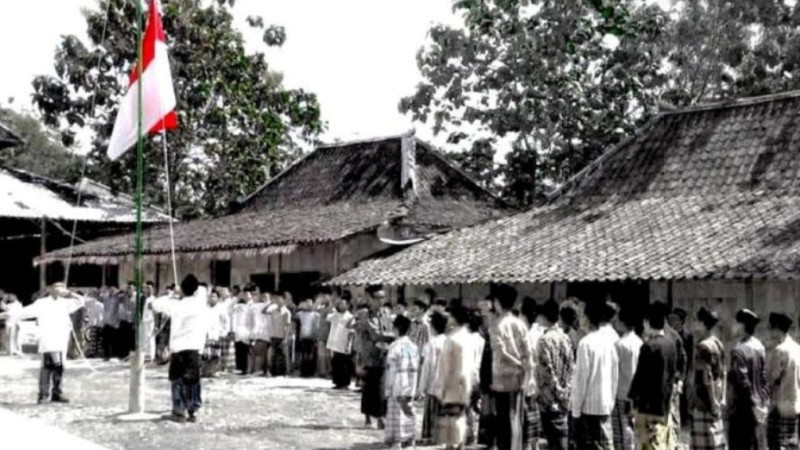Pesantren and Current Indonesian Politics

Tulisan ini telah diterjemahkan ke dalam tulisan yang berjudul: Pesantren dan Politik Masa Kini
Oleh: K.H. Abdurrahman Wahid
The current situation of Indonesian politics can be summed up in one word: Turbulance. The problem is of a delicate nature – the process of succession for the country’s highest office of President is made more difficult by the sensitive problems of severe economic crisis. The dwindling state revenues necessitate belt-tightening measures which will effect the delicate balance of power between interest groups. Moreover, the efforts to solve the severe economic crisis necessitate a fundamental shift in the economic structure which is difficult to accept for those currently enjoying a monopoly of the economy. The difficulty found in effecting that kind of economic restructuring brings about the imperative for a political restructuring which, in its turn, causes a destabilized political situation due to the dynamics of the competition between the bureaucrat-cum-politicians on the one side and the military brass on the other, over the control of the state machinery.
Therefore, it is relatively easy now to predict that a heated rivalry between both sides will develop in the near future, although it is still difficult to forecast the concrete points of conflict that shall take place. It is possible, however, to point out the points of complaint which each side levels at the other. The bureaucrat-cum-politicians point out the questionable be haviour of the military apparatus in failing to support Golkar during the last election but giving support to the opposition. On the other hand, the military brass could now use their warnings of the alleged infiltration of “leftist subversionists’’ into Golkar’s rank and file. They could cry foul also Golkar’s recent demand for chairmanship of all provincial and district legislatures, which are traditionally the preserves of the military establishment.
All those developments display the turbulent nature of Indonesian politics, which threatens the spectre of uncontrollable conflict within the large governing circle itself. The President, as the top decision-maker, has his hands filled with difficult choices, as each choice brings its own negative possible consequences and grave implications.
It is natural for NGOs to think that such a situation warrants an involvement from them. The temptation to meddle in affairs of state by supporting one side or the other is great. The attraction of the idea is to extract democratic commitments to enhance the process of democratization which they have worked hard to effect for so long. The strong pull to join the struggle usually takes the form of conceptualizing alternative concepts or strategies for one or more contenders for power.
Such an exercise, of course, is a naive one. For one thing, the contending groups would use those theories in a summary way, i.e. to criticize and blame each other, without understanding the basic value of each theory submitted by well-meaning NGO activists. On the other hand, it is easy to predict that each concept or strategy would be discarded by the winning side precisely because the victors do not understand exactly the implications of that very concept itself.
Rivalry at the highest level of government is a political development difficult to utilize for a democratization process. It is not a substitute in the long run for effecting a conscientization process at grassroots level. The national elite’s competitive political manouvrings cannot in the long run guarantee freedom of expression, rule of law and complete equality before the law which are the objectives of efforts to transform the society in a participatory manner.
Pesantrens, through their fragmented approach to social change so far, are naturally an easy prey to the political pulling forces described. It is natural for some pesantrens to participate in the endeavours to present and submit alternative concepts or strategies to contending groups. To expect otherwise is not natural. However, pesantren people themselves, and those who cooperate in community development with them, should keep in mind the great danger of doing so since those manouvres would divert energies from their original objectives. One can only hope that the voice of reason is already strong enough among pesantren people to enable them to resist the temptation to meddle in national politics so crassly.
The pesantren should remember that political roles should be differentiated from political institutions. NGOs can play important long-term political roles in transforming the society without themselves becoming political institutions or entering alliances with political institutions. Like mass media and professional associations, NGOs would lose their true political role as soon as they began to cultivate institutional political ambitions. The pesantren generically is a part of the Indonesian NGO tradition, and it is better to stick to that tradition by not allowing itself to be sucked into a volatile situation such as is current at the time of writing.